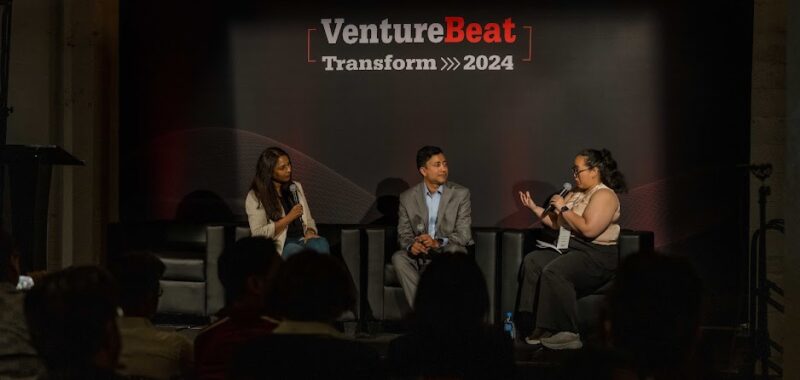Join our daily and weekly newsletters for the latest updates and exclusive content on industry-leading AI coverage. Learn More
Bringing generative AI to the doctor’s clinic is not just a matter of plugging in technology but a way to save time for everyone.
Kiran Mysore, chief data and analytics officer at Sutter Health, and Google Cloud Director for global healthcare Aashima Gupta said during a panel at VentureBeat’s Transform in July that generative AI has helped reduce many administrative tasks involved in clinical visits.
“These are very early days productivity use cases; what we’re solving for is ‘pajama time,’ the idea that for every hour a physician spends on the patient, they spend two hours searching for information and piecing together things,” Gupta said.
>> Follow all our Transform 2024 coverage here <<
The healthcare space is no stranger to technological advancements. Mysore said systems like Epic, a platform where patients can enter their health information and medical providers can send messages, helped accelerate digitization. Once Covid hit, more people expected to get more information about their health, so the industry had to respond quickly.
There are many use cases for gen AI in healthcare, from improving workflow to scanning and analyzing medical imaging. Many big organizations in the space, like Kaiser Permanente, have implemented AI in their work, including using predictive analytics to monitor patients proactively. Gupta and Mysore said a significant use case makes it easier and more personable for the patient and the physician to see a doctor.
For Sutter Health, Mysore said AI helps improve the patient and physician experience.
“There are two types of patient experience that we focus on,” Mysore said. “The first one is when you go to the doctor, and you’re speaking to the back of their head because they’re typing, and the other is implementing capabilities where you can essentially listen to the conversation between the patient and the physician and capture that real-time.”
He added that AI helps physicians better understand a patient’s history and can spend more time talking to the patient to figure out what’s happening with them.
Not for diagnostics yet
Gupta was careful to point out that gen AI is not being used to diagnose patients, saying that the technology is still in its early days. Instead, Google Cloud wants to give clients the ability to look at the data they do have and build tooling around it.
“From the Google Cloud perspective, we are an enabling company, meaning we are building the foundation, tools technologies to bring to the healthcare ecosystem,” Gupta said.
She said one use case Google Cloud’s clients have explored is addressing healthcare worker burnout. Google introduced MedLM, an industry-tuned model running on its Gemini platform that helps summarize nurse shifts. It removes the need for a shift to write up a report on what happened during the night. Google Cloud also lets hospitals and other medical providers use its tools to search for connections between ailments and medicines, so there’s less time spent figuring out if a prescription will counteract another.
The privacy and adoption question
Both Gupta and Mysore acknowledge that some people still feel uncomfortable around AI and that physicians tend to stick to the technology they know.
“When we approach doctors, we look for the folks that are most amenable to change and we’ve made them the champions by surrounding them with the right technology and support,” Mysore said. “It’s easy for people to lose trust, especially when the first response from an LLM [large language model] is not very good, so we engage with stakeholders to explain everything.”
Gupta said that in every industry, especially a heavily regulated one like healthcare, the stakes are high, so it’s important to hear concerns and work closely with users. She added it’s helpful to emphasize that there is still a human in the loop.
Both panelists underscored that patient and physician data remains private and will only be accessed by those authorized to do so.
Source link

